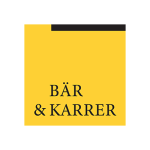Various countries worldwide have recently enacted laws to enhance the promotion of environmental, social and governance (ESG) matters or are currently discussing the introduction of such laws. In Switzerland, several recent legal developments are promoting ESG matters and will contribute to a stricter legal framework on ESG issues and to a more sustainable economy.
New rules on gender quota on the executive level of large companies and executive compensation are part of a new corporate law that has been passed last year, although not yet fully effective. New rules on ESG disclosure and due diligence requirements are part of a separate bill that will likely enter into force in the second half of 2021. Finally, new rules for commodity companies have recently been introduced in Swiss law.
More diversity in boardrooms and rules on executive compensation
The representation of women on the board of directors and executive committee has been a widely discussed topic for some time. Women are still underrepresented on the executive level of Swiss companies. Thus, gender quotas that have come into force in January 2021 pursue the goal of further promoting gender diversity in the boardroom.
The new rules (new Article 734f of the Swiss Code of Obligations, CO) applicable to listed companies exceeding certain thresholds require that each gender must be represented at least by 30% on the board of directors starting from 2026 and by 20% in the executive management starting from 2031. The statutory minimum quotas are not designed as binding obligation, but they are introduced on a comply-or-explain basis for the board of directors and executive management of the relevant companies. There are no sanctions in the event of failure to achieve the targets, but the reasons for the failure and the measures to be taken must be disclosed in the compensation report. Therefore, they will certainly be considered by shareholders and activist shareholders.
Since 2014, Swiss law contains rules on say-on-pay and regulation of board and executive compensation for listed companies, including an annual binding say-on-pay vote by shareholders. With the corporate law reform some of these rules will be adjusted, including a stricter regulation of post contractual non-compete agreements (total compensation will be capped at the annual average compensation of the last three years, regardless of the length of the non-compete). These rules are likely to enter into force in 2023.
The new disclosure and due diligence regime for ESG matters
Non-financial reporting obligations
After several years of debate and an intense voting campaign, Switzerland has voted against the adoption of the so-called ‘Responsible Business Initiative’ in November 2020 (albeit reaching a tight majority of the popular vote). This initiative would in particular have introduced a new liability regime for Swiss companies with respect to actions of subsidiaries and other affiliates abroad.
While the initiative was rejected, a counterproposal introducing new reporting and due diligence obligations regarding ESG matters will be implemented in the law. The referendum period against the new law ended on August 5 2021. While there has not yet been an official communication, there are no indications that a referendum will be held against the bill. Accordingly, it is to be expected the new rules will enter into force soon, and at the latest in January 2022.
Currently, Swiss law does not contain specific legal disclosure regulations on ESG issues. Companies can, however, include certain information in their annual report on a voluntary basis. Companies with a primary listing on the SIX Swiss Exchange may opt in a sustainability report according to an internationally recognised standard, which is published on the SIX Swiss Exchange website and binds the issuer.
The new rules (new Articles 964bis to 964septies CO) will require companies of public interest domiciled in Switzerland, e.g. listed companies and prudentially supervised large companies in the financial sector, to publish annual reports on ESG matters. These non-financial reporting obligations are analogous to the Non-Financial Reporting Directive of the European Union (Directive 2014/95/EU) and they must, among other things, describe the overall approach applied to ESG matters, any due diligence measures taken and their effectiveness, as well as the main risks in connection with ESG matters. The report on ESG matters must be approved by the board of directors and the shareholders’ meeting like the annual financial statements, but the report must not be audited.
Failure to comply with the new obligations on ESG matters may result in criminal liability (fines up to CHF100,000 – approximately $110,000).
Companies whose financial year corresponds to the calendar year will presumably have to publish their first report on ESG matters in 2024 (covering the financial year 2023).
Conflict minerals and the fight against child labour
Additionally, the amendment regarding ESG disclosure introduces a special human rights due diligence and reporting obligation for all companies with their registered office, central administration or principal place of business in Switzerland regardless of their size that (i) import or process tin, tantalum, tungsten, or gold containing minerals or metals from conflict or high-risk areas (conflict minerals) or (ii) offer products or services giving rise to a justified suspicion that they were manufactured or provided using child labour are required to conduct due diligence and to report annually on their due diligence activities.
|
|
“The report on ESG matters must be approved by the board of directors and the shareholders’ meeting like the annual financial statements, but the report must not be audited.” |
|
|
The details regarding these special reporting and due diligence rules will be governed by a specific ordinance (Ordinance). The public consultation procedure (Vernehmlassungsverfahren) on the text of the Ordinance has been closed on July 14 2021. The current draft of the Ordinance provides certain exemptions from the due diligence and reporting obligations and specifies applicable due diligence obligations, however, some of the feedback on the new draft criticise these exemptions. Therefore, further changes to the Ordinance are not excluded. Currently, the Ordinance provides the following exemptions:
Exemptions in connection with conflict minerals
The Ordinance specifies both import and processing quantities for which exemptions from the due diligence and reporting obligations apply. The thresholds are based on the thresholds foreseen in the Regulation (EU) 2017/821 on conflict minerals. Further, the import and processing of recycled metals is not subject to the due diligence and reporting requirements, regardless of any thresholds.
However, the relevant company must document that such metals originated exclusively from recycling or are extracted from scrap. Not covered by the exemption are unprocessed or partly processed minerals or by-products of ores that do not contain tin, tantalum, tungsten, or gold.
Exemptions in connection with the fight against child labour
The inspection duties regarding child labour risks will apply to very many companies according to the following review rules:
Review thresholds: If a company, together with controlled companies, falls below two of the following thresholds in two consecutive financial years: (i) total assets of CHF 20 million; (ii) revenues of CHF40 million; (iii) 250 FTEs on annual average; it does not need to perform any further examination;
Review risks: If a company reaches or exceeds these thresholds, the company must assess whether the countries from which it sources products or services present low, medium or high child labour risks. The risk analysis must be carried out annually. For purposes of the risk analysis, the companies may consult the UNICEF Children’s Rights in the Workplace Index (UNICEF Index), which currently covers most countries. If the country of origin presents low risks (risk classification ‘basic’ according to the UNICEF Index), the relevant company does not have to perform any further examination.
Review suspicions: If the assessment shows that medium or high risks exist (risk classification ‘enhanced’ or ‘heightened’ according to the UNICEF Index), a company must confirm whether there is a reasonable suspicion of child labour in relation to a specific product or service. A suspicion of child labour is reasonable if based on one or more concrete indications or perceptions there is ground to assume that a product has been manufactured or a service is being provided with the use of child labour. Whether a certain activity constitutes child labour depends on the age, type of work, and working conditions. For the assessment ILO Convention No. 138 may be used as a guidance. If the examination does not reveal any concrete, justified suspicion of child labour, the company is exempt of the due diligence and reporting obligations.
Exemptions due to compliance with internationally recognised regulatory frameworks
According to the draft Ordinance, companies that adhere to internationally recognised regulatory frameworks equivalent to the new Swiss standards are also exempt from the due diligence and reporting obligations. These internationally recognised regulatory frameworks will be defined in the Ordinance. In any case such companies must prepare a report in accordance with the chosen regulatory frameworks and refer in the report to the internationally recognised regulatory frameworks applied.
These special due diligence and reporting obligations are also subject to a criminal liability (fines up to CHF100,000) and are anticipated to come into force at the same time (i.e. probably still this year, with a first report to be published in 2024 covering the financial year 2023) as the other ESG requirements.
Special transparency rules for commodity companies
Further, independently from the ESG disclosure mentioned above and as part of the corporate law reform mentioned before, new ESG-related transparency rules for certain commodity companies have entered into force at the beginning of this year (new Articles 964a to 964f CO).
|
|
“Those falling within the scope of the new regulations should set up or assess their current business relationship control framework. They will have to establish, to the extent not already existing, and maintain, a sound reporting process on ESG matters.” |
|
|
Companies that, directly or indirectly through a controlled entity, extract minerals, oils, natural gas or primary forest wood and which are subject to an ordinary audit (listed companies, companies exceeding two of the following thresholds in two consecutive financial years: (i) a total of CHF20 million in assets, (ii) CHF40 million turnover, (iii) 250 FTEs on annual average, and companies that are required to prepare consolidated accounts), will have to publish a special report, approved by the board of directors, with respect to certain payments of an aggregate amount of CHF100,000 or more to governmental authorities.
Such special reports will have to be published for the financial year commencing one year after the entry into effect of the new rule, i.e. the first time in 2023 for financial years starting from January 1 2022 onwards.
Next steps regarding the new ESG requirements
The new ESG requirements described above are in final shape and expected to enter into force very soon, but with few exceptions, the exact date of entry into force remains to be seen and should be further observed.
The date of application of the new gender diversity rules in the executive bodies of larger Swiss-listed companies is already known but leaves sufficient lead time to prepare and consider in the context of succession planning. Regarding the adjusted rules on executive compensation, Swiss companies should closely follow the development of the entry into force of the corporate law reform and depending thereon, should consider starting to prepare for implementation in due course.
With respect to the new ESG requirements, the following next steps are recommended:
Swiss companies should clarify whether they will have to publish a report on ESG matters. Those falling within the scope of the new regulations should set up or assess their current business relationship control framework. They will have to establish, to the extent not already existing, and maintain, a sound reporting process on ESG matters. Some companies in scope of the new reporting obligations on ESG matters do already publish corporate and social responsibility reports that are based on the corresponding EU directive or other standards such as the GRI standards. In such cases, an analysis should be performed to identify potential gaps regarding the new requirements under Swiss law. All newly established procedures and requirements should be sufficiently documented and discussed by the governing bodies, including the board of directors.
Further, all Swiss companies must analyse whether they trade with or process conflict minerals or are subject to the review obligations regarding child labour. Unless an exemption applies such companies must adhere to the additional human rights’ due diligence and reporting requirements, which involves a check of their compliance.
Finally, Swiss companies should analyse whether they qualify as commodity company under the new regulations, and if yes, they should prepare for the required disclosure in 2023 (covering the financial year 2022).
Click here to read all the chapters from IFLR's ESG Europe Report 2021

Urs Kägi
Partner
Bär & Karrer
T: +41 58 261 56 13
Urs Kägi is a partner at Bär & Karrer, where he is the co-head of the capital markets and the corporate and commercial practices.
Urs advises listed and non-listed companies, investors and financial institutions on a broad range of corporate, capital markets, M&A, corporate governance and regulatory matters. As a regular publisher of articles, he is the co-editor of a leading law journal for corporate and capital markets law, the Zeitschrift für Gesellschafts- und Kapitalmarktrecht (GesKR).
Urs is a graduate of the University of St Gallen, has earned a LLM at UC Berkeley and has a doctorate degree from the University of Fribourg.

Vera Naegeli
Senior associate
Bär & Karrer
T: +41 58 261 55 89
Vera Naegeli is a senior associate at Bär & Karrer. Her practice focuses on all kinds of regulatory matters as well as on M&A transactions and general corporate and commercial law.
Having written her doctorate thesis on the promotion of ESG matters, Vera is an expert in the field. As a former assistant public prosecutor, she further specialises in white collar crime matters and general compliance questions.
Vera graduated from the University of Basel with a doctorate degree and holds an LLM degree from Harvard Law School. She was recently shortlisted as a ‘Rising Star: Corporate’ for the Women in Business Law Awards Europe 2021.



